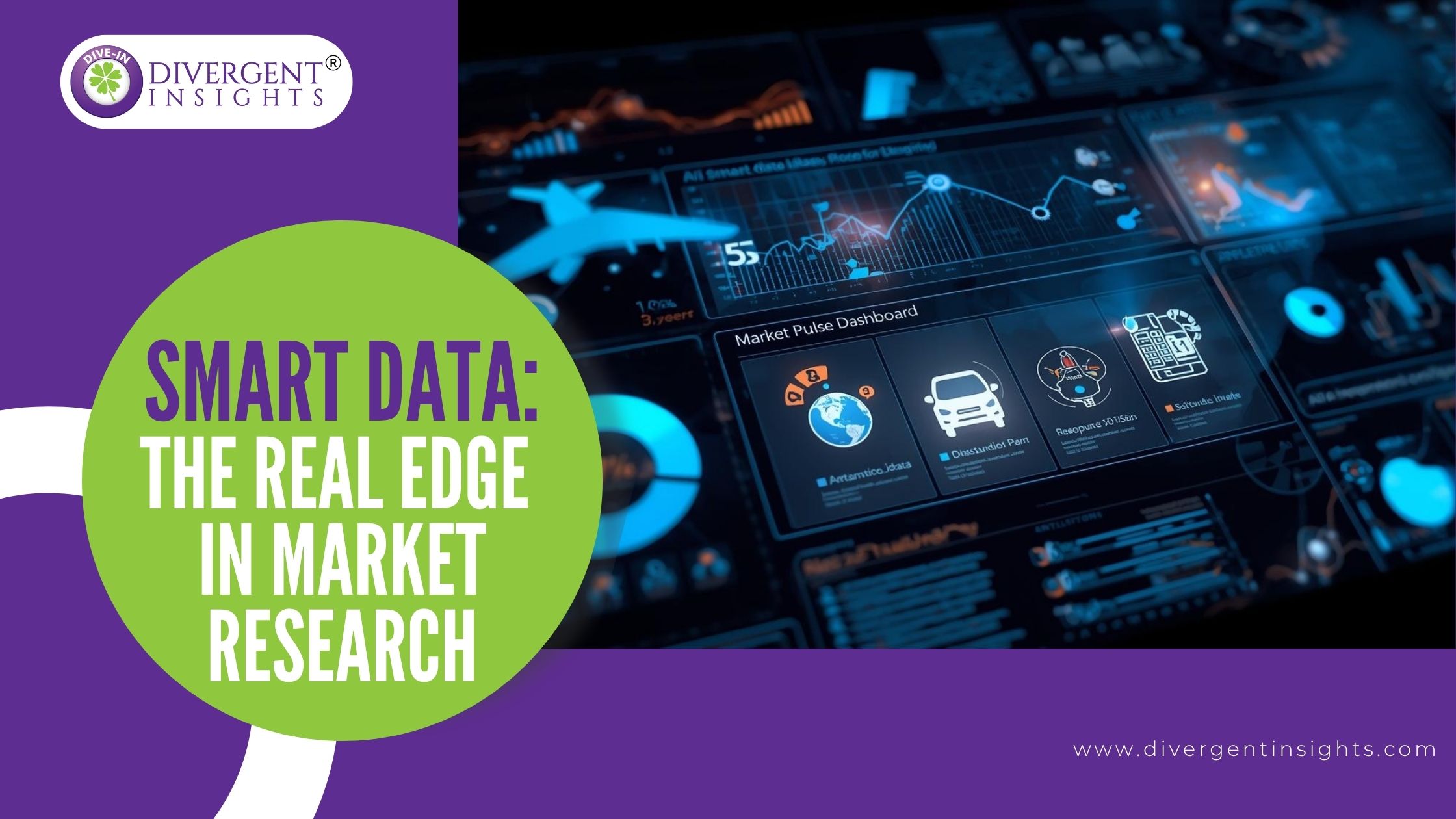
We live in a world drowning in data — dashboards, reports, analytics, everywhere you look. Yet many businesses are still starved for real insight. The truth is, it’s not the amount of data that matters anymore — it’s how smart your data is.
Smart data is what separates organisations that are simply tracking the market from those shaping it. It’s not about big numbers or fancy tech; it’s about finding the signal in the noise — the patterns that move the needle.
At Divergent Insights, we see this every day. Smart data has become the engine powering sharper decisions, more predictive insights, and agile innovation across sectors. Let’s explore how it’s quietly rewriting the rules of market research — with some powerful examples from aviation and automotive industries leading the way.
From Overload to Intelligence
Big data gave us scale — oceans of information from social media, sensors, websites, and CRM systems. But most of it sits raw, scattered, and contextless.
Smart data is the evolution. It’s data with purpose — filtered, verified, enriched, and ready for action.
Think of it as the difference between collecting random pieces of a jigsaw puzzle versus assembling them into a clear picture. When that picture emerges, business decisions become faster, more confident, and far more accurate.
When Airlines Started Predicting, Not Reacting
Take aviation. Every flight generates terabytes of data — bookings, check-ins, weather updates, loyalty transactions, and customer feedback. But one leading Asian airline turned this deluge into smart data and transformed its operations.
By analysing booking patterns, event calendars, and even weather forecasts, it identified micro-segments like “business travellers who book flexible tickets within 72 hours.”
The result? Dynamic pricing that adapts in real time, better fleet planning, and hyper-targeted offers for last-minute fliers.
That shift alone lifted last-minute ticket sales by 12% and reduced seat wastage — proof that when data gets smarter, strategy follows suit.
How Automakers Are Anticipating What Drivers Want Next
The auto industry is going through its biggest transformation in a century — from combustion to electric, ownership to mobility. And behind this revolution? Smart data.
One global automaker we worked with layered web search trends, sentiment analysis, and dealership visits to predict which Indian Tier-2 cities were ripest for EV adoption. The insight was eye-opening: charging anxiety, not price, was the real barrier.
This changed everything — marketing budgets shifted from generic campaigns to local “EV awareness drives” and charger tie-ups. Within months, intent-to-purchase scores rose by 18%.
When data becomes intelligent, it doesn’t just describe behaviour — it shapes it.
Smart Data Is Changing the Game
Whether it’s predicting passenger demand or decoding why customers hesitate before buying an EV, the value of smart data lies in its ability to connect dots that were never connected before.
It’s enabling:
- Precision over assumption: Moving from broad averages to individual understanding.
- Speed over hindsight: Predicting tomorrow’s shifts instead of reacting to yesterday’s reports.
- Agility over rigidity: Testing, learning, and iterating products or pricing strategies in real time.
And it’s not limited to aviation or auto. Retailers, healthcare providers, and even financial institutions are embedding smart data into every strategic decision — from designing products to mapping customer journeys.
Making Data Work for You
Adopting a smart data mindset isn’t about installing new software — it’s about rethinking how insights are generated and used.
Start small. Integrate your data sources. Build an ecosystem where teams trust the numbers and act on them.
At Divergent Insights, we help brands navigate this shift — merging human judgment with machine intelligence to turn complex data into clear action.
Because the real competitive edge in today’s market isn’t more data — it’s smarter data.
And those who master it won’t just keep up with change; they’ll define it.


